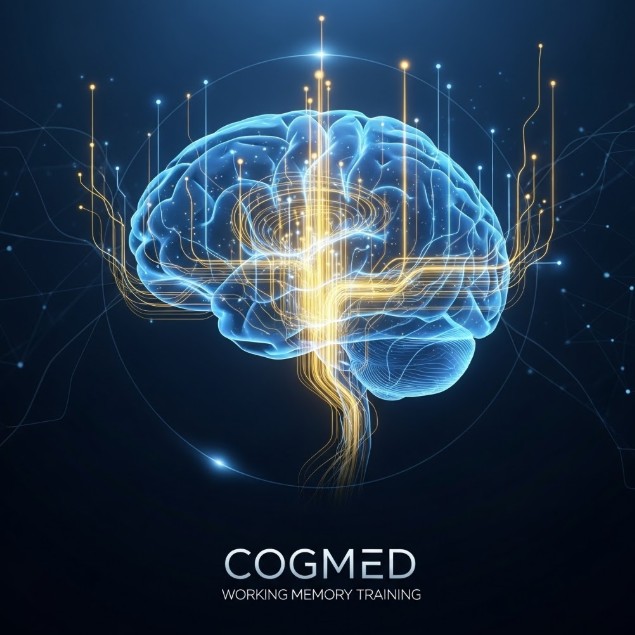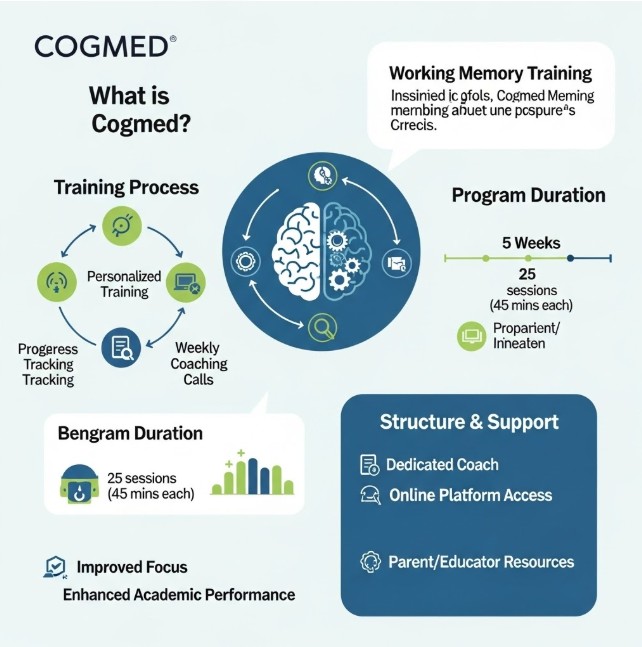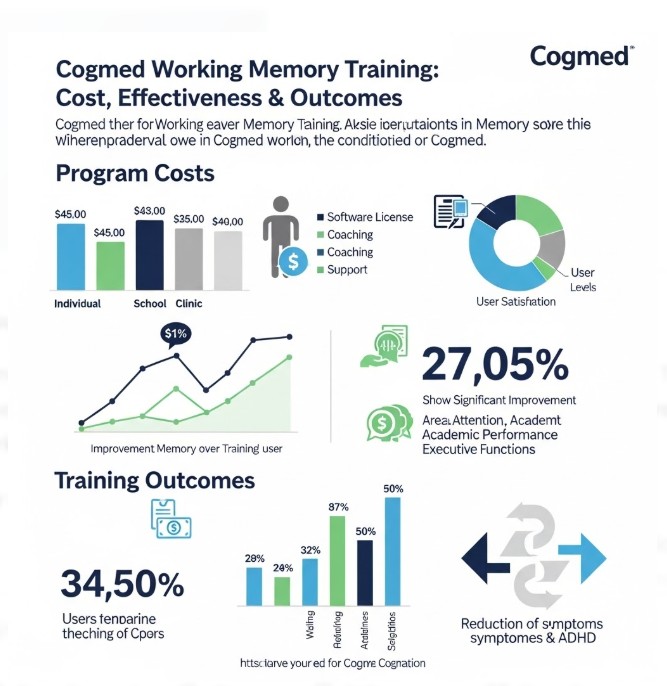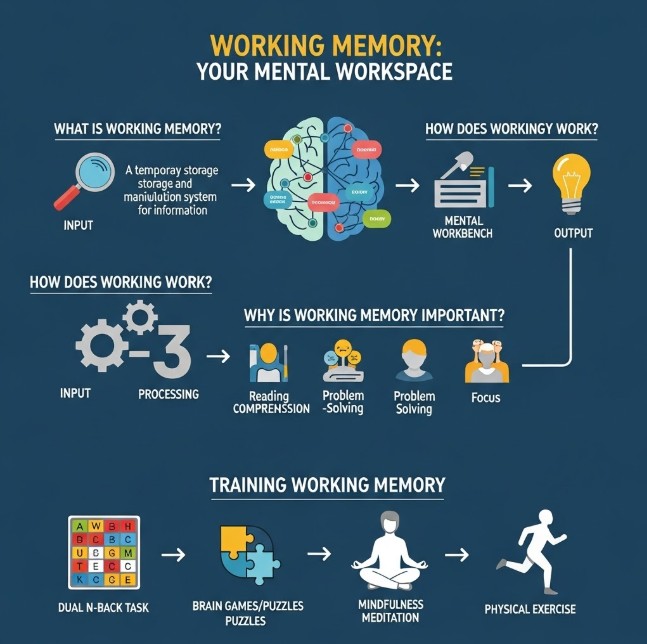
What Is Cogmed Working Memory Training? Cost, Program Details, and Results
Table of Contents
The ability to hold and manipulate information in our minds is central to learning and encoding. When this capacity, known as working memory, is limited, our cognitive productivity may suffer. Over the past two decades, researchers have searched for ways to strengthen this mental function through digital tools. One of the most well-known science-based platforms integrating psychology, neuroscience, and technology is the Cogmed working memory training program.
For teachers, students, and lifelong learners, the program raises an essential question: What is Cogmed working memory training, and does it offer quantifiable outcomes?
Brief History and Development of Cogmed
Cogmed was originally developed in Sweden in the early 2000s by neuroscientists and clinical psychologists seeking real-world applications of cognitive neuroscience. Initially, it was tested on children with attention problems. Then, it was applied to larger groups after repeatedly refining controlled studies. The program today is used globally in research centers, clinics, and schools, with real-world use supporting it.
Science Behind Working Memory
Working memory is the mental workspace of the brain. It allows us to retain and manipulate data temporarily. Whether we’re doing math problems, remembering directions, or comprehending a challenging section of text, we’re essentially relying on this mental skill.
According to scientific research, effective working memory is highly correlated with reading comprehension, reasoning ability, and fluid intelligence. Conversely, deficits can disrupt academic performance and increase frustration in adults and children. This realization has created interest in memory training software that extends beyond short-term gimmicks and aims for lasting cognitive enhancement.
How the Cogmed Working Memory Training Program Works

The Cogmed working memory training program is structured as a computer-based and online intervention presented under the direction of a trained or professional coach. The program is not grounded in rote memorization but instead engages users in real-time adaptive challenges that push mental boundaries.
Its developers founded its design on the assumption that extensive and focused practice—combined with feedback and progression—engenders neuroplastic change, so the brain is able to strengthen its own pathways. Unlike entertainment games, Cogmed is promoted as a science-driven memory improvement program with clinical protocols and measurable outcomes.
Structure of the Program
Cogmed typically runs for five or six weeks, with five weekly sessions of about 30 to 45 minutes. There are multiple tasks in each session designed to optimize various aspects of working memory. The system is adaptive: if a participant works well, it increases the level of difficulty; if there are too many errors, the system decreases the difficulty downward to keep motivation high, but the challenge is still effective. An instructed trainer is looking for change, providing feedback, and helping to keep individuals consistent, so it is more personalized than isolated practice.
Difficulty Level and Exercises
There are numerous types of brain training exercises on the site for challenging both verbal and visually-spatial working memory. Activities can include anything from recalling a sequence of numbers to tracking the position of something moving to practicing patterns under time pressure.
The secret is that exercises are never static: difficulty rises incrementally to match the person’s ability. This keeps the brain constantly stimulated just beyond what it’s used to, a method proven in cognitive science for maximizing neural adaptation. Users typically indicate gains not only on test measures but also in daily life, such as being able to keep up with conversations, stay focused in lectures, or organize daily activities.
Who Can Apply It (Children, Adults, the Elderly)
Cogmed’s greatest strength is its versatility. For students with attention issues, it provides focused practice to enhance learning in the classroom. Teenagers and university students often use it to increase concentration, study efficiency, and academic resilience. Adults apply Cogmed to enhance work performance, especially for professions that require multitasking and decision-making under pressure.
Seniors, however, benefit from remaining cognitively fit because ongoing engagement in structured activities slows down the inevitable decline in working memory ability. Across all age groups, the goal is not just to complete an Internet-based course but to experience tangible improvements in daily mental performance.
Cogmed Working Memory Training Cost

When consideration is being given to any program of structured cognitive treatment, cost over the long term and value for money are key considerations. All learners, parents, and professionals not only want to understand “what is Cogmed working memory training” but also how much it will cost. Regions, providers, and levels of professional support are the factors that shape the cost, so it can vary, but there are consistent trends in terms of cost structures.
Average Cost and Subscription Models
The Cogmed working memory training cost typically varies from a few hundred to over a thousand dollars for the full program. The vendors do not offer one-time purchases; the business model is a time-limited license with coaching assistance. The subscription is normally set up for five or six weeks, corresponding to the duration of the training, and perhaps follow-up check-ins to monitor long-term improvement. Generally, fees range from approximately $1,500 to $2,000. Some providers may offer packages starting around $550, while others may charge up to $2,250, depending on the services included.
Factors that Influence Cost (Duration, Coaching, Location)
A number of factors impact the final expense. The greatest is the coaching levels: intensive weekly instruction is offered by some providers, whereas others offer only periodic check-ins.
Geographic location is another factor, with premiums being paid in large cities compared to small towns.
Length and any booster sessions beyond the package could also be a factor in the overall investment.
Finally, the Cogmed working memory training program is usually conducted by licensed providers; thus, provider credentials can further influence the cost structure.
Is it an Investment Worth Making? ROI in Cognitive Performance
The important question is whether the investment produces quantifiable improvements. In terms of neuroscience, the answer is likely to be yes. Working memory is a malleable, trainable system within the brain. By repeated challenge, brain pathways become solidified in much the same way that muscles hypertrophy following resistance training. Research indicates that participants frequently show gains on memory tasks and also in real-world outcomes like continuous attention, academic attainment, and work productivity.
For example, distractible children will probably be better at following multi-step instructions after completing the program. Students in college may report that learning complicated material no longer appears so frightening because they can retain more information simultaneously. Adults report greater focus on the job or in meetings, or accomplishing more during multitasking. Seniors may experience faster mental quickness and greater confidence in managing daily activities.
While some great games to improve working memory can be played online with visible cognitive results, some of them do not have the same adaptive challenge or professional supervision as Cogmed. In this context, the cost is not merely a fee for entry but an investment in mental resilience, life-long cognitive learning, and brain function.
Evidence and Effectiveness
Research Studies and Clinical Trials
Cogmed has been tried in a wide range of peer-reviewed studies and clinical trials. It has been attempted with kids who have ADHD, college students with learning problems, stroke survivors, and elderly individuals. Most studies show quantifiable gains in working memory capacity and related cognitive abilities, though the effect can differ from person to person.
These findings highlight how a computer program can serve as a bridge between theory in neuroscience and real-world applications. For researchers, Cogmed is now a benchmark in discussions about technology-driven cognitive rehabilitation. Its systematic, adaptive methodology sets it apart from casual brain apps, offering a template for how intense digital training can be clinically significant.
Reported Improvements and Limitations
Research participants usually show notable improvement in daily functioning. Children report being more persistent at following multi-stage instructions, and students report problematic studying as less intimidating. Businesspeople and working professionals usually report better multitasking and sharper memory.
Despite these advantages, there are some limitations. Change is not experienced by everyone and not to the same degree of depth. Some improvements are passed on extensively to academic or professional functioning, while others involve stronger memorization. This equilibrium is pivotal in the description of Cogmed working memory training and its rational outcomes.
How Long Do Results Typically Last
Research indicates gains are sustained for many months after program completion, particularly when reinforced by continued mental activity. Children carry enhanced concentration and learning endurance into the following year, suggesting that gains exceed the training duration.
The same is true for adults and older persons. Others observe ongoing consistency in job duties or sharper thinking in daily activities. While some working memory games have sporadic bursts of practice, few are as tenacious. By contrast, the ordered execution, expert feedback, and unwaveringly adjustable exercises of Cogmed are conducive to more sustained neuroplastic changes. When combined with healthy lifestyle practices, users generally experience sustained attention improvement and greater mental performance resilience.
Alternatives to Cogmed Working Memory Training: Other Memory Training Programs

Even though the Cogmed working memory training program is potentially the most recognized cognitive solution, there are other great mind aids. Other computer-based programs, such as Lumosity, Peak, or BrainHQ, also offer sequenced drill-and-practice exercises intended to enhance attention and memory. They vary in scientific foundation; some are grounded in substantial research, but others are essentially gamified fun.
For learners seeking strong clinical backing, Cogmed remains distinctive. However, examining other options is useful. A comparison of features such as adaptive difficulty level, coaching support, and target age groups will help the learner identify the best fit. Perhaps most importantly, it is useful to know whether the app is focused on short-term motivation or long-term cognitive development.
Free and Inexpensive Alternatives
Not everyone is going to pay for an expensive program. Low-budget or even zero-budget strategies can also help working memory, though. Strategies like the memory palace, where information is organized in virtual spaces, have been used for centuries to help with recall. Basic exercises on apps, puzzle books, or even disciplined study habits can also pay off in the long run.
Libraries and learning sites tend to have free brain games available, and while these won’t provide the same adaptability and accuracy as commercial software, they encourage frequent practice. For the majority of students and lifelong learners, it’s frequent practice that matters more than cost. Even simple tools, used frequently, can develop stronger mental strength.
Conclusion
Cogmed is unique due to its evidence-based format, adaptive level of difficulty, and professional monitoring. Its users tend to develop greater concentration, clearer recall, and perceptible gains in schoolwork or a job. Both advantages and disadvantages need to be balanced, though. Consideration should be given to cost, time investment, and variable results before registering.
How to Determine if Cogmed is Best for You
The choice rests on individual aims and budget. For those who want a systematic method with a scientific basis, Cogmed is a solid choice. Others with less severe needs or lower budgets might prefer other options, such as conventional methods or inexpensive apps. The objective in either circumstance is the same: developing cognitive strength that aids learning, problem-solving, and adaptability.